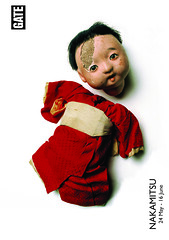Bird flu [Avian, H5N1], what risk a pandemic?
When not pontificating on theatre, I happen to know quite a lot about drugs and pharmaceuticals. All these media articles on bird flu and comparing it to 1918 are beginning to get me a bit antsy.
It is possible that the virus could mutate and leap to humans (maybe via pigs) and cause a pandemic, but the actual risk is very low, in my opinion. I’m not going to go into detail about the stats involved in getting the virus to a pig or human, then getting a mutation, and then getting it to sprea to a pandemic. Expect to say there have been less than 200 documented [exact number I think is closer to 120 but let’s add some more on for undocumented cases] cases of bird flu in humans since 1997 when the virus first appeared. There’s nothing that different this year from last. Furthermore, that’s not a very large population of people for the virus to make a mutation and jump easily 9especially with the whole world looking out for it).
It is possible. It’s just not very likely. You are more likely to get hit by a car.
But, let’s say, we do get a “pandemic” – will it be like 1918?
A few points, one mixed and the others positive.
1. The world, particularly the developed world but also the less developed counties, is in a much much better state of health and nutrition. Access to reasonable healthcare or even just being looked after properly will be a huge protection from dying from ‘flu.
2. Very few people actually die from ‘flu. People die from pneumonia after ‘flu. [And in fact pneumonia and pneumonia waves remains big killer today]. In 1918, we struggled to do much about pneumonia, but today we have antibiotics ie a cure, and a way of looking after people. Far fewer people will die from the secondary infections. True, the young and elderly will still be at more risk, but the adult population (so decimated in 1918) will likely resist.
Remember penicillin wasn’t developed until past 1929 much too late to help in 1918.
3. 1918 was the end of world war I. Soldiers and many of the general population were not in good shape and constantly exposed to any airborne disease. I believe many in 1918 did not die from the war but from ‘flu exacerbated by conditions of war. Soldiers also helped spread the disease fairly effectively. These are not conditions in 2005.
4. The possible negative and what has caught the imagination of the media, is that no one knows how virulent the virus (currently H5N1) would be in a human pandemic. It may be very strong, or quite possibly it may not be. We simply do not know. There is no reason to believe it won’t be very virulent but then we could equally well guess that it will not be so.
Therefore, I conclude the circumstances today are very different from 1918. Not only is a pandemic unlikely, although admittedly possible, but if one were to occur, in all likelihood the death rate would be much much lower than in 1918. Furthermore, I would conjecture it would not be as bad as those suffering from malnutrition in Malawi at the moment, those suffering from HIV in Africa and those living in malaria zones.
Antsiness over. I feel a bit better.
Some stats
Supposedly The Department of Health’s contingency plan says that between 21,000 and 700,000 deaths could be expected in Britain from a flu pandemic. It does also point out that quite a few people die from ‘flu (or ‘flu related disease) in a non-pandemic year.
DoH is using about 48,000 only as their base case scenario.
More than 1,000,000 die annually from malaria [Who stats].

